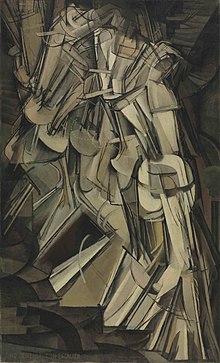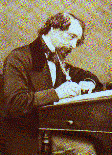
My blog page was intended for the use of posting information relating to my first novel Benson's House. I was hoping it would become a vehicle for discussions and a companion to the novel, allowing descriptions of the era's, topics, themes, and subplots of the story.
However, finding the time to write new articles has been preoccupied by the necessities of polishing the novel for publication, and rewriting letters to promote the book. I'm finding less time to commit to developing new material or contributions to the blog.
Still, I need to write. I'm compelled by this unknown desire. So, I submit the following short unrelated to Benson's House, and hope you enjoy.
The Steakhouse Dinner
He watches with discontent as she applies her lip gloss to the measure of the restaurant chatter and the soulful phrasing of Sam Moore's- I Can't Stop the Rain- piping in from the ceiling speakers. Her eccentric application is enough to prompt him to dismiss the date; to return home to the half consumed sandwich, wedged- for the last two days- between a half filled carton of Corona and a plastic wrapped case of water bottles on the bottom shelve of his garage refrigerator. However, he decides, instead, to endure her antics and not allow her self indulgences to prevent him from enjoying his favorite steakhouse- chosen selfishly- as his reward for the months of Friday night dates, escorting her to pricey dining locales, where she hoped to be discovered as the next national broadcasting treasure.
She closes her compact mirror and places it the depths of her knockoff Lois Vuitton, Cabas, Ambre, handbag, just as the food arrives.
"I don't see what attracts you to dumps like these? There's not a soul in this place that can offer anything to advance our careers."
"Perhaps not, but they singe a wicked Rib-eye," he offers while winking at the waitress. "Anyway, I'm quite happy with what I do."
"Best steaks for the price in town, ma'am, can I get ya'll anything else?
"I don't suppose you'd have a Valium or a stomach pump handy?"
"No ma'am."
"Then just bring me another Mojito," she says dismissively.
"I'll have another beer."
"I don't believe for one minute you're really content with producing the local news. We could've dined with the Hendrickson's at Roy's tonight, John. He's often spoke of meeting with you to consider your advancement into the larger markets. That's how things are done in this industry- over dinner in swank restaurants in a more relaxed atmosphere. I would have ordered the seared Barramundi, instead of this slab of animal flesh. My God,will you look at the portion of meat they've served me? I can't eat all this."
Already indulging in a bite of his season rubbed, entrée, John focuses on the taste as a distraction to the protesting coming from the other side of the table. He chews, silently, savoring the flavors, watching as she grips the utensils and slices the bacon wrapped fillet upon her plate.
"Oh this thing is way undercooked," she objects while tossing her knife and fork onto the table. "This hunk of meat has E. coli written all over it."
He swallows before speaking.
"Katherine, taste it. It's suppose to be pink inside. I've had it before. It will melt in your mouth."
"Let it melt in someone else's mouth. If I ate that I'd be in the bathroom all evening, and I have better things to do tonight. We should of gone to Roy's."
He carves off another piece of steak, and begins chewing with aggravated fervor.
"My God, John, I'm an anchor, and a regularly watched person in this community. What were you thinking, bringing me to a diner full of yokels, to fattening me up with large slabs of undercooked cattle?"
"Beef is not fattening."
"Really, John, speak with you mouth full. It's such a turn on. I'm incredibly attracted to you at this moment."
He pauses, motionless, with a grimacing expression.
"What's wrong?"
"I bit my tongue."
"Here we are," the waitress said returning with the beverages.
John swallows, then places his napkin on the inside of his mouth.
"What's wrong?"
He bit his tongue."
"Oh my," the waitress said placing the drinks in their appropriate spots.
John pulls the napkin away to reveal a circular, rose colored, blotch on its folded corner.
"Nice. Now your tongue will probably swell to the size of a baseball with all the bacteria contaminating your steak."
"Is there somethin' wrong with his steak, ma'am?"
"It's fine. I'll be okay."
Katerine fans her hand, dismissively.
"You can take this away."
"Aren't ya gonna eat you meal ma'am?"
"No."
"Do you want me to bring a box?"
"Yes," John interjects, "Bring boxes for each; we're leaving."
"Yes sir."
Katherine crosses her arms and raises her left hand to support her chin.
"What?" She finally asks.
"Does any of this have to do with the comment I made to the lady at the retirement home luncheon this afternoon?"
"Oh that. I've forgotten about that, but now that you bring it up, yes. You told that innocent, little, old, lady that Palin was not news worthy, after she asked you to allot the candidate more air time."
"Palin hasn't officially announced that she is running."
"Whatever. That's just another example of what everyone's been trying to instill in your stubborn mind, now, for the last year or so. Our viewers like Palin, and don't care about the issues. They want to be entertained. It's what television does; it entertains."
"And informs. We have a responsibility to the segment of viewers who want to be informed, don't we? How are they to decide on an elected official if we don't report the issues?"
"What are you talking about? People vote because they have a right to. You can't tell them how to vote."
"I'm not suggesting that. I'm simply pointing out that they need information to make informed decisions. Our network has a responsibility to provide that."
"Trust me, our viewers don't care to be informed that way. They want to learn about events going on in the community, the weather,and that's it. And, they want an attractive woman- who doesn't stutter- to present it to them. That's why I was hired."
"Here's your boxes."
"Listen, dear, see if you can't get the cook to fire this up a little longer, would you please."
"That mean you're staying?"
"Let's see if this man can finish his meal without chumping on parts of his tongue, shall we.
"Yes, ma'am.
"Would you bring me a glass of Jack Daniels?"
"You just want a full glass of bourbon?"
Katherine smiles.
"Just bring him a double on the rocks for now, and another Mojito for me."
"You know, you're such a hypocrite," Katherine continues as the waitress moves away. "You talk about the need to feed the public intellect, and, yet, you date me- not because I'm intellectual- but because I'm hot, and you like the attention that's drawn to us."
"I don't see it like that."
"Bullshit."
"You know, sometimes you can be as phony as your handbag. I know you don't mean all that you're saying.You've told me, often, that you feel the world is becoming a cesspool of uneducated, tattooed plasma; consuming to fill the intellectual void in their lives."
"And you think our little news network can change all that? If we attempt to change our viewer's habits our audience will tune out. Our ratings will then drop, and you and I, my dear, will be looking for something else to do. You can't go back to your editorial post at the Times- they're falling apart. Just where do you think you'll land? I don't think Fox will have you"
"Here's your steak ma'am."
"Oh goody!"
Katherine cuts off a small portion.
"How is it?"
Um; just yummy," she says sarcastically.
"Oh, well, I'll go get your drinks now."
Actually, John, this is damn good," Katherine admits when the waitress was out of earshot.
"Something's gonna change; it's bound to. Society can't continue on this intellectual slide."
Katherine was not listening. She was preoccupied by her dinner.
Soon the waitress returns with their drinks.
"Somethin' I've been meaning to ask you all night, ma'am. Aren't you the lady on the local news channel?"
Katherine pauses to swollow.
"Yes, but do keep it to yourself, shall we? I don't often have time to relax outside of the limelight."
"I understand."
"Tell me," John askes, " how often do you watch the local news?"
"I don't, to be honest. They really don't have much to say, 'cept what's goin' on with the local teams, or maybe the weather."
"I see. So, where do you get your news from?"
"Oh, the internet, mostly- Huffington Post- that sort of thing."
John's smile spurs Katherine to interject.
"Tell me what do you think is the most provocative story out there?"
"Oh I reckon it's this Casey Anderson trail."
"Uh huh, and do you think she did it?"
"I don't know. She probably did, but I don't think they've got enough evidence pinned to her. She'll probably walk, and make millions on her life story, or end up on Dancing with the Stars or somethin'. I swear, that's just how things are, now, in America. People are just so damn stupid, and I blame the stuff on television. I remember my daddy made the family watch Cronkite every evening at 7:30, right after dinner, before any of the prime time shows came on. We'd then talk about the issues during the commercials over the remainder of the night. Nowadays, the evening news is on during the dinner hour, so folks can watch Wheel of Fortune. No ones listening to what's gonin' on in the world anymore. Seems a shame. Can I get ya'll anythin' else while I'm here."
John smiles.
"No, darlin'; comeback a little later.
He then returns his attention to his meal.
"I'm surprised, Katherine states. "I would have thought the pain from the last experience would have prevented you from biting you tongue again."
John chuckles and motions with his fork.
"I think she spoke to the issue well enough without the need of further commenting. Go on an finish what little bit is left of your steak."

